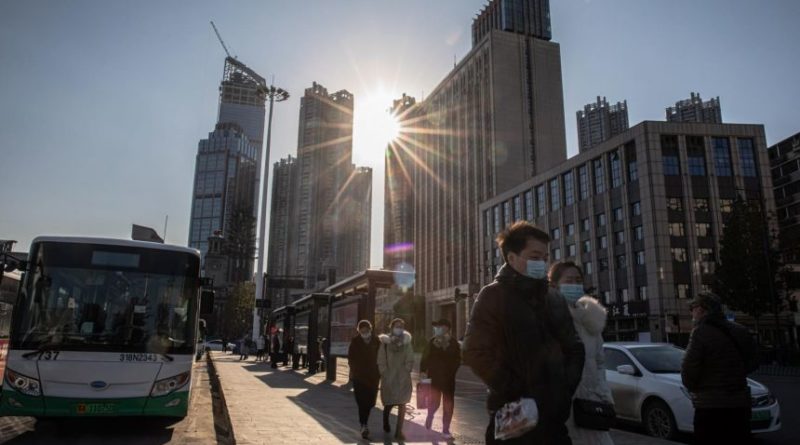COVID-19 PANDEMIC : The next pandemic is already on the horizon
SINGAPORE – Covid-19 will not be the world’s last pandemic. Many of us may even live to see the next one, but we are unlikely to be any more prepared for it than we were for this one.
That is the bleak opinion of Dr Kenneth Iserson, professor emeritus of emergency medicine at the University of Arizona in the United States, who specialises in global and disaster medicine.
The world is already seeing a number of new diseases that could potentially develop into Disease X, Dr Iserson told The Straits Times, referring to a placeholder name that acknowledges the likelihood of a severe infectious disease still unknown to humans.

“There are probably other unrecognised infectious diseases already in circulation that can have devastating implications. But the disparate, politically motivated and uncoordinated response to Covid-19 suggests that we have not learnt much that will prepare us for future pandemics.”
Disease X is one of a dozen deadly pathogens, including the severe acute respiratory syndrome (Sars) and Ebola, that the World Health Organisation deems top research priorities, given their potential to cause a pandemic.
Covid-19 is the Disease X that plunged the world into crisis in 2020. But as nations roll out vaccines developed in record time in the new year, the next unknown, unnamed entity may already be lurking.

Prevent, not react
Vaccines are not a cure-all.
“Vaccines and treatments are reactive rather than preventive,” Dr K. Srinath Reddy, president of the Public Health Foundation of India, told The Straits Times. “They are not an assured form of long-term protection. Microbes, too, learn to mutate. More importantly, new pandemics can start and wreak havoc before we can develop vaccines or test drugs against them.”
The best preventive measures against the next pandemic, Dr Iserson said, is active international surveillance, especially in hot spots for novel diseases, such as China, the Amazon basin and central Africa.
“That takes adequate funding, coordination, and the political willingness to quickly publicise and act when new infectious agents are identified.”

Yet, despite humanity’s best intentions, the “memories of angst and societal disruption during Covid-19 will recede” and “our bulwarks against pandemic diseases will remain underfunded and inadequate to the task” amid politicking and red tape, the professor argued in a commentary published in the Western Journal of Emergency Medicine earlier this year.
Dr Iserson’s views, while pessimistic, are based on the history of the response to repeated pandemics over the millennia, he said.
Mr Peter Sands, executive director of the Global Fund to Fight Aids, Tuberculosis and Malaria, refers to this phenomenon as “cycles of panic and neglect”, in which the world rushes to inject funding in the wake of massive outbreaks like Sars and Ebola, but cease their support once they are contained.
Moreover, the global focus on the current pandemic may have unwittingly shifted resources away from some areas of research into preventing the next one, even as it comes hurtling towards us, unseen.
.


Planning ahead
On the bright side, although much of the world has thus far paid little heed to the importance of preventing Disease X, with its focus firmly on bringing Covid-19 to heel, some governments are already thinking several steps ahead, putting new plans – and more funds – into place.
The US, for one, has committed US$82 million (S$109 million) over five years to set up and support the Centres for Research in Emerging Infectious Diseases (Creid), a global surveillance network tasked with detecting the next pandemic pathogen before it leaps from wildlife into humans.
In announcing Creid’s establishment in August, the country’s top infectious diseases expert, Dr Anthony Fauci, made it clear that the coronavirus crisis was a key driving factor.
“The impact of the Covid-19 pandemic serves as a potent reminder of the devastation that can be wrought when a new virus infects humans for the first time,” he said.
“The Creid network will enable early warnings of emerging diseases wherever they occur, which will be critical to rapid responses. The knowledge gained through this research will increase our preparedness for future outbreaks.”
India, another major power, has raised funding for multidisciplinary disease surveillance systems and boosted laboratory capacity for such research work across the country, as part of a 150 billion rupee (S$2.7 billion) package for Covid-19-related measures.
In Singapore, the Government has committed a record S$25 billion – 5 per cent of its 2019 gross domestic product – to a series of plans charting the country’s research landscape over the next five years, among which is a research programme for epidemic preparedness and response.
Under the Prepare programme, researchers will work with others in the region to keep a close watch on pathogens in animal populations, fine-tune models to better understand how epidemics can be contained, and ensure that diagnostics, treatments and vaccines can be quickly readied when the next crisis strikes.
Other international networks, like the Global Virome Project, which seeks to detect the majority of the world’s unknown viral threats to human health, are continuing their efforts and pooling resources with ever greater urgency in the hope that humanity can learn everything there is to know about the next Disease X before it even occurs.
Far more remains to be done, however, with too little attention currently paid to some areas most crucial in the work to prevent another pandemic.
On top of improving eco-surveillance, Dr Reddy said, “we also need to stop deforestation… and promote plant-based foods, in preference to excessive consumption of animal foods, especially those of exotic animal origin as well as factory-farmed livestock and poultry”.
“If we maintain ecological balance and pursue the path of sustainable development, we will change our relationship with other life forms from harm to harmony.”
.

Experience can help
Perhaps a silver lining in the dark cloud of the hanging threat of another pandemic is that even if – as Dr Iserson predicts – politics and bureaucracy eventually get in the way of the best intentions to prevent it, the world’s shared experience with Covid-19 may still go some way in equipping it for the next global health crisis.
A year ago, it would have been unimaginable that a vaccine could be developed from scratch, approved by regulators, produced in the millions, and rolled out in mass inoculation campaigns around the world in a matter of months.
That a host of scientists, politicians, pharmaceutical and drug manufacturers around the globe have managed to bypass the red tape, divisive politicking and funding issues that typically plague the vaccine-making process to pull that off in less than a year is proof of what international cooperation can achieve when there is a single-minded focus.
“We have to remember why (Covid-19) was detected when it was,” Dr Josie Golding, epidemics lead at global health research funder Wellcome, said. “It was because there was experience in (China) from Sars and from avian influenza, there were systems in place to detect strange pneumonia coming up.”
Dr Golding added: “Covid-19 is going to put a lot of those systems and experience in countries… The countries who dealt with it better and faster at the beginning were the ones who had that historical knowledge. I think that is going to make a big difference when it comes to the next Disease X.”













